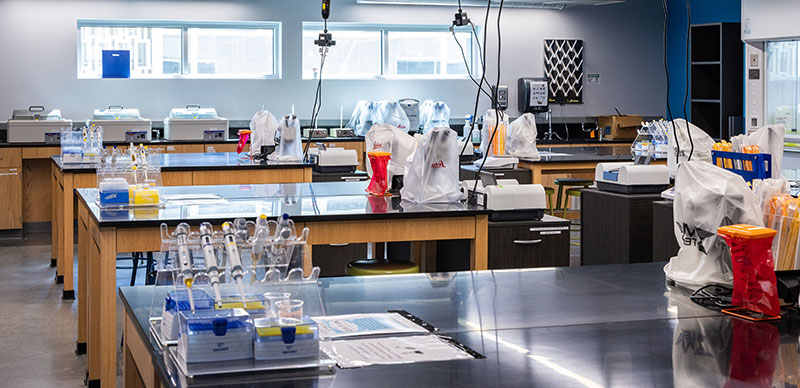|
The Geotechnical Lab supports the following standard experiments:
- ASTM D422 - Particle-Size Analysis of Soils
- ASTM D698 - Moisture-Density Relations of Soils Using 5.5-lb Rammer and 12-in. Drop.
- ASTM D854 - Specific Gravity of Soils
- ASTM D1140 - Amount of Material in Soils Finer than the No.200 (75-mm) Sieve
- ASTM D1556 - Density of Soil in Place by the Sand-Cone Method
- ASTM D1557 - Moisture-Density Relations of Soils Using 10-lb Rammer and 18-in. Drop.
- ASTM D1558-10 - Standard Test Method for Moisture Content Penetration Resistance Relationships
of Fine-Grained Soils
- ASTM D2166 - Compressive Strength, Unconfined, of Cohesive Soil
- ASTM D2216 - Laboratory Determination of Water (Moisture) Content of Soil
|
- ASTM D2434 - Permeability Test for Soils (Constant/Falling-Head Method)
- ASTM D2435 - Standard Test Method for One-Dimensional Consolidation Properties of
Soils
- ASTM D2487 - The Unified Soil Classification System
- ASTM D2488 - Description and Identification of Soil
- ASTM D3080 - Direct Shear Test of Soils Under Consolidated Drained Conditions
- ASTM D4253-00 - Using a Vibratory Table
- ASTM D4318 - Liquid Limit, Plastic Limits, and Plastic Index of Soils
- ASTM D4647 - Standard Test Methods for Identification and Classification of Dispersive
Clay Soils by the Pinhole Test
- ASTM D7128-05 - Standard Guide for Using the Seismic-Reflection Method for Shallow
Subsurface Investigation
|
|









